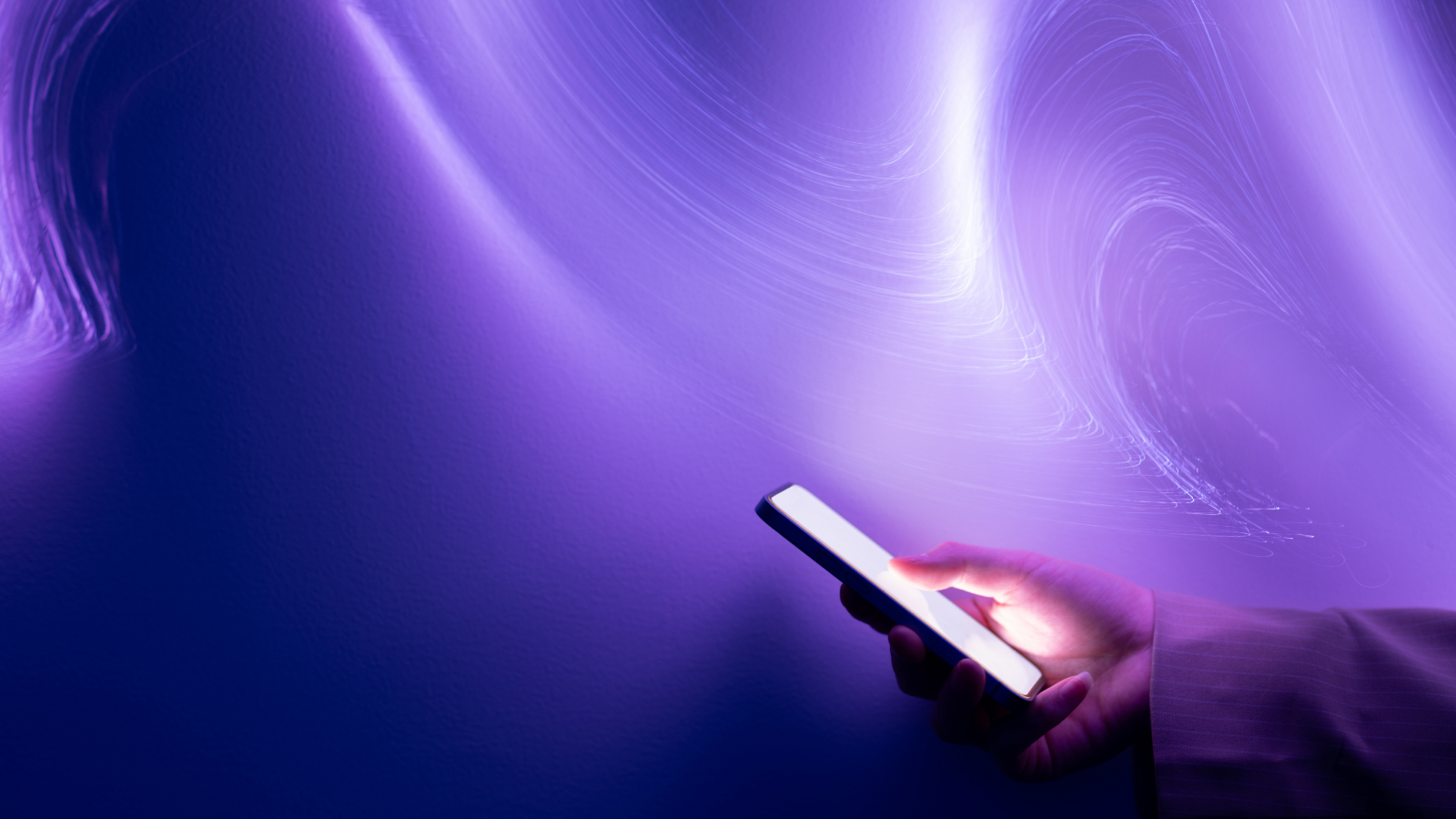
Scientists have sent data through the air at speeds of up to 938 gigabits per second (Gbps) — setting a new record for wireless transmission speeds.
The new record, closing in on 1 terabit per second (Tbps), is the equivalent of downloading a 30 gigabyte (GB) 4K Ultra HD movie in 0.26 seconds. In comparison, using the download would take approximately 17 to 29 minutes using average 5G connections in the U.S, which range from 140 to 230 megabits per second (Mbps). In the U.K, where the researchers are based, average 5G speeds are roughly 100 Mbps, meaning the data transmission speeds achieved are roughly 9,380 times faster.
The scientists achieved this by combining radio and optical technologies for the first time, which enabled them to tap into radio frequency (RF) wavelengths of up to 150 gigahertz (GHz). They outlined their methods in a new study published Oct. 15 in The Journal of Lightwave Technology.
Most 5G connections transmit data in "narrow" frequencies below 6 GHz. But these transmission bands are highly congested, meaning speeds tend to be much lower than the theoretical maximum speed for 5G, which is 20 Gbps.
But future 6G transmission speeds are likely to occupy higher frequencies than the narrow 5G bands, which will let communications networks tap into much higher speeds. These bands include the "upper mid-band" frequencies from 7 to 24 GHz, alongside "sub-terahertz bands" from roughly 90 to 300 GHz, according to the Global mobile Suppliers Association (GSA).
“Current wireless communication systems are struggling to keep up with the increasing demand for high-speed data access, with capacity in the last few metres between the user and the fibre optic network holding us back," senior study author Zhixin Liu, a professor of electrical engineering at the U.K-based University College London (UCL), said in a statement.
"Our solution is to use more of the available frequencies to increase bandwidth, while maintaining high signal quality and providing flexibility in accessing different frequency resources. This results in super-fast and reliable wireless networks, overcoming the speed bottleneck between user terminals and the Internet."
Related: Scientists could make blazing-fast 6G using curving light rays
The new approach combines two existing wireless technologies for the first time — high-speed electronics and millimeter wave photonics, Liu added. The latter technology uses photonics, or light, to generate millimeter-wave radiofrequency signals. This hybrid system enables large amounts of data to be transmitted wirelessly over bands that could be used in future systems like 6G.
The scientists combined electronic digital-to-analog signal generators, which operate in the 5 to 75 GHz range, with light-based radio signal generators, which let data be transmitted across frequencies between 75 and 150 GHz. The total bandwidth of 145 GHz was five times more than the system used to achieve the previous wireless transmission world record, the scientists said.
This hybrid technology could be used to propagate wireless signals from masts in crowded places so that people can tap into these 5G (and eventually 6G) speeds from their smartphones. It would enable more people to use wireless networks in densely populated areas, such as at large concerts, without experiencing network traffic or sluggish speeds.
The scientists have only tested their system in a lab but plan to produce a prototype that can be used in a commercial setting. If successful, they hope to incorporate their technology into commercial equipment within the next five years.







